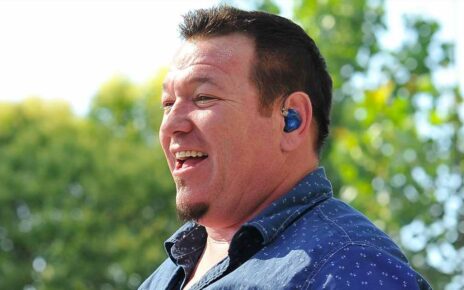FOR many of us the goal of life is to work hard and hopefully someday earn more than our parents did at our age.
Although it is easier said than done with soaring inflation and rising house prices, one woman is proving you can achieve big no matter where you come from.
Suzanne Samaka, 35, from Hertfordshire says she fell into banking and now she can afford a lifestyle which was drastically different to the one she had growing up.
Too cool for school
Suzanne said she never really considered herself an academic.
She said: “I was more interested in the social side of school than anything else. I managed to get fairly good grades with minimal work.”
“I enjoyed learning and continue to do so, just not in a formal academic way. I am very much more an example of on-the-job training.”
Read more money stories

I've gone from school drop-out at 16 to running a £250k business – it's easy

I earn £150k a year in an industry with thousands of vacancies without a degree
When she finished school, Suzanne never even considered going to university because of her family’s finances.
She said: “Money within my family confirmed that I didn’t want to go to university.”
“I am from a family with a low socioeconomic background and was brought up solely by my mum who worked several jobs.”
“I didn’t want to put my family under financial pressure and also wanted to earn my own money as soon as I could.”
Most read in Money

How to spot cost of living Xmas bonus as benefit claimants get cash boost

EuroMillions player will wake up £201MILLION richer as mega jackpot scooped

Inside UK’s most viewed homes on Zoopla – £25k terrace and £36.5m mansion

Exact date to act to ensure you don’t get overcharged on energy bills
Banking on a chance
After school, Suzanne went in search of a job and she fell into banking by chance.
She said: “I started working as a cashier in the branch, I love people and talking to new people so it felt like a good place to start.”
“I was earning around £900 a month back then.”
Suzanne said she fell in love with working in banking straight away,
“I really enjoy my job as it is the perfect mix of working with different people and being the expert and problem solver.”
But she has no idea just how far she could go in the industry.
She said: “I’ve always enjoyed working for the bank in every role I’ve done. It has always predominantly focused on people which is where my core skills lie.
“Working in banking for 18 years has made me very proud.”
Over the past 15 years, Suzzane worked her way up the ranks in banking to a role where she is now earning around £65,000 a year.
She said: “I am now a corporate relationship banker working with large corporations to give guidance and support with their cash and liquidity management.”
“I love my job now I get to with different people, internally and externally and every day is different.”
However, despite her success, Suzanne revealed her job does come with some sacrifices
She said: “I’m working around 40 hours a week and now that I have two kids a lot of the admin work required for the job is done once they are in bed.”
Bank holidays
Despite the hours, Suzanne confessed her job comes with a range of perks and most importantly she can support her family.
Suzanne can take her daughters, Enya aged 4 and Betsy aged 2, on holidays she could only dream of as a child.
She said: “My take-home pay is in excess of £3k per month. This enables me to have a very different lifestyle for my family and me than I had growing up.”
“We take regular holidays throughout the year and I really enjoy creating memories such as Christmas and birthdays.”
“I never have to worry about buying things that myself or the kids need.”
But old habits die hard and as a banker, Suzanne is an avid saver.
She said: “Having grown up in a family with limited money made me a saver so by habit I am still very careful with the finances.”
Although Suzanne admitted her career may have been a little easier with a degree, she doesn’t think she missed out.
She said: “The route in may have been easier as I may have had the chance to get on a graduate programme rather than work my way up, but I certainly wouldn’t have as much internal knowledge if I had!”
Suzanne added: “University isn’t the be-all and end-all.”
“Some people’s strengths lie in academia and some people's strengths lie in anything other than academia.
“Play to your strengths and be proud of your background or anything that differentiates you.”
“It helps you stick out in people’s memories, which I have only found positive and helpful to my career.
Suzanne's top tips
Suzanne has some helpful advice for aspiring bankers.
She said: “There are so many roles, focus on your strengths and find one that matches these or what you enjoy doing.
“Do not be put off by your preconceptions about what you 'should have' to do work in banking.
“We need much more socioeconomic diversity and I am an ambassador for our internal Employee Resource Group called Inspire which is focused on supporting people who identify as coming from a low socioeconomic background.”
Big companies, such as banks, often have a range of development schemes and training opportunities that can help workers who start in entry-level roles work their way up through the company.
Some of the top apprenticeship schemes are offered by Barclays, HSBC, Lloyds Banking Group, Natwest and Santander.
All of these schemes will pay at least the minimum wage but some go up to £29,000 a year.
If you are interested in getting into banking you might want to consider a banking apprenticeship or banking degree apprenticeship.
Read more on The Sun

Sceptical Strictly fans accuse show of fix in favour of ‘BBC favourite’

Sue Radford's daughter Tillie shows off cooking skills as she makes dessert
Most of these schemes are focused on data and digital skills as opposed to the research skills you will pick up at university.
In the competitive world of banking, forging lasting relationships with both personal and business customers is just as important as is being good with numbers.
Source: Read Full Article





